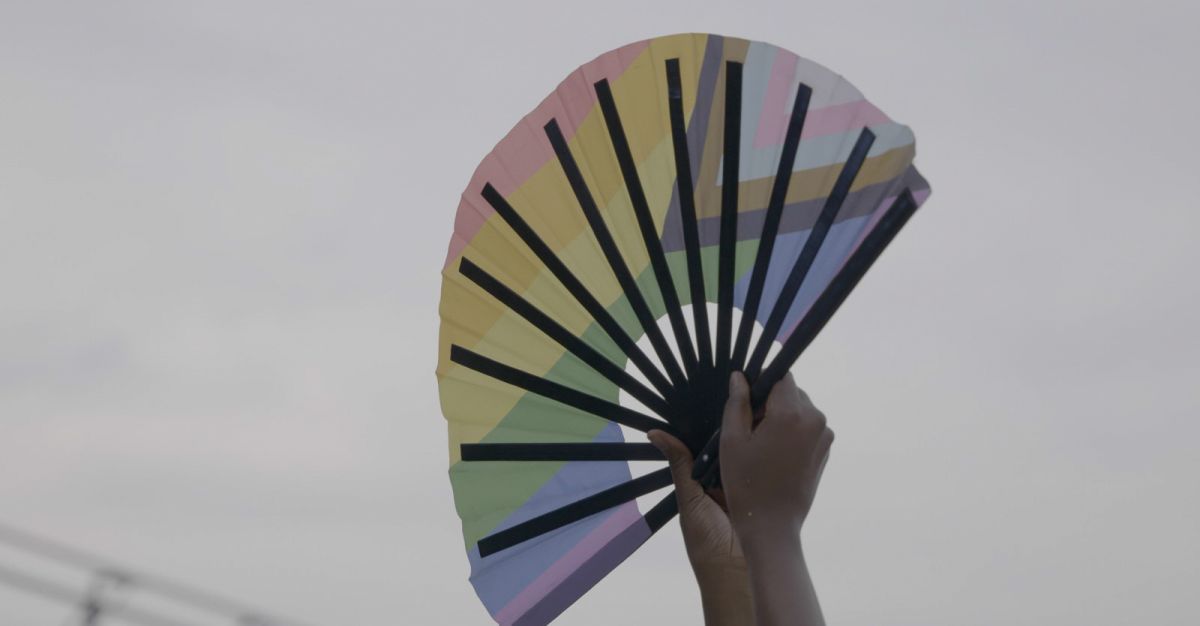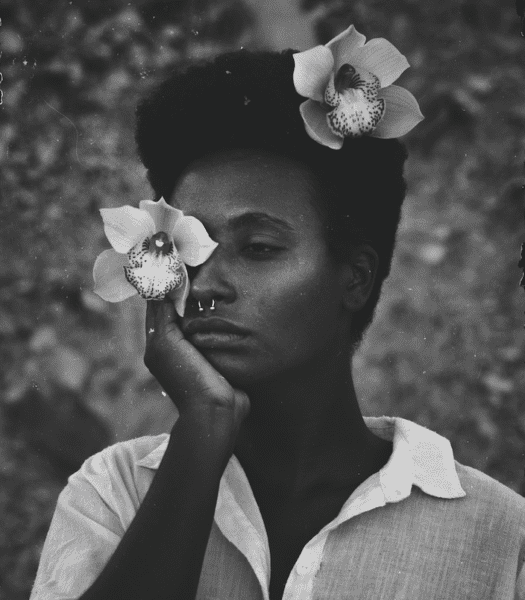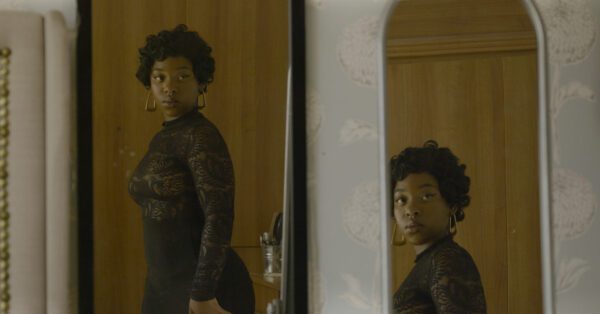“The most revolutionary thing to do is to show Black people having fun”: In conversation with Ana Serna

Ana Maria Jessie Serna (she/her) is a Colombian and Black, Pan-Africanist, lesbian filmmaker of Raizal heritage and a recent graduate of MA Visual Anthropology at the University of Manchester. Serna strives to share the stories of black, indigenous, lesbian, and queer communities in joyful, beautiful, and insightful ways.

Studying History for her undergrad, Ana learned the importance of documentation. For her first project she decided to shed light on the experiences of women from a small Colombian community who, for the most part, could neither read nor write. Out of respect for their story, Ana decided to incorporate audio-visual elements to the project to best represent the experiences of this community. This experience solidified her position as a filmmaker and reflects the ethnographic approach found in Serna’s films.
Culture and the respect of culture are themes that found in Serna’s films. She told The Mancunion that “My presence is my ancestry, so everything is ancestral and traditional. The Raizal community is an afro-indigenous community. We believe in the importance of defending the ocean and our ancestral territory. I carry the sea and the Caribbean with me all the time. Culture is always inside me. Even working with the camera, rather than fishing or agricultural work, my tradition and culture is very important.”
Ana’s film Because I Know How Beautiful My Being Is will be coming to film festivals soon and is a celebration of. and much needed expose into, the Black, lesbian, and queer community in Manchester. Serna talked about the difficulties and successes she had finding participants to include in the project and how “it was really hard because it’s not easy to speak about your sexual identity”.
“Especially if you belong to a black family…it’s still something very dramatic in the black community even in the UK.” Serna expressed her surprise to this as she was expecting queerness to be normalised, “especially with Manchester being an important queer city in the UK”, but there was some hesitation from potential participants.

Serna draws inspiration from many Black and/ or queer revolutionary creatives and spoke about the importance of “honouring those that started everything”. She discloses that in Manchester she felt the loneliness of capitalist culture in a new way. Being far away from her family and friends Ana started reading book by authors like Audre Lorde, Frantz Fanon, Angela Davis, Toni Morrison and many more Black writers and academics.
“I was just in my room reading a lot. Crying a lot. I decided to make a dedication for these people that came before us. My film (Because I Know How Beautiful My Being Is) is a dedication to Audre Lorde. She is very important in my work and my research”.
Additionally, Ana makes references to academics and filmmakers such as Beatriz Nascimento, Leila Gonzales, Sarah Gomez, a Black filmmaker from Cuba, and Safi Faye, a Senegalese filmmaker, as her “favourite film in the world” is Faye’s Mossane. Finally, Cherish Oteka, a BAFTA award winner, because “their vibration is very important for the black queer movement in the UK”.
When I asked her about the importance on representation and her opinion on the state of it, Ana disclosed that the question should be more concerned with the “lack of real education on anti-racist movements”. Serna critiques the false promises of human rights, culture, diversity, and respect that white people tend to make because “when they have the opportunity to show you respect they decide to reduce you, and not all of them but most of them”.
“It is not necessary to promise kindness and respect … you need to educate yourself. They teach us to learn their language, their culture, and even to love their queens but why don’t they take their time to educate themselves. They don’t want to teach us our history because if they teach it they need to carry many responsibilities they don’t want to assume”.
Ana pointed out that knowledge is becoming more and more accessible and that “as minorities we do not have the responsibilities to teach you anything anymore because we need to live our lives”. It is for this reason that her films are “not about these thing” because “the most revolutionary thing to do is to show black people having fun, enjoying their lives and living their dreams”; however Serna finalised her thought by acknowledging the importance of “speak about our pain but in a different way”.
Serna consider herself to be a Pan-Africanist woman so for her it is very important to “create another image of being black in the world” because “the audio-visual, the television and the film industry is responsible for some of the racist structures in the world”.
The subjects in Serna’ films tend to lean on vulnerability to share their experiences. She discussed with us her filmmaking process from an ethical point of view. Her first rule is that “the person is more important to me than the film” and that honesty about the project is crucial to make a film that both the filmmaker and participant/actor is proud and happy with.
For Ana, “ethics are not only about a system but it is about the filmmaker as an individual, that’s why with every project that I do, I have to make a manifesto. If I don’t do that, I am going to forget that the person is a person and that the film is just a film. Respect is a very fragile line so you always need to have conversations about your ethics”.
Serna speaks about working with white filmmakers on set and why she sometimes prefers to work with Black people. “I work with Black people because I think that’s the magic, because if you put a white person in the team, even if they are the best at what they do, it’s a waste of precious time because if they don’t understand the essence of your being, it’s so hard to explain to somebody else what is inside of you. If I work with them (white people), they have to be very very educated about racism and blackness”.
“Even when there are different mentalities in a Black team, your definitions of racism can change, but most of the time you don’t have to explain certain things. I think that marginalised people feel something that is very similar and we can work together and create more magic because that’s what we need. We are in a really beautiful moment of Black magic, with Afrofuturism or Black existentialism, that I think we need to continue to express. The colonialist and capitalist forget us so we need to trust each other more and give ourselves more opportunities”.
Serna acknowledges that she’s commencing her career but advises up-and-coming black and queer filmmakers to: “Just go dance and enjoy your time. Find your people, those who share your dreams. Finish your shooting or whatever it is and show your work to the world. You do not have to be the best, you have to be yourself”.
Nonetheless she wants them to know that its going to be hard and that “you are going to understand that in this society when you are black and when you have such a lack of opportunities you need to know that you’re going to have to try even harder, especially if you are in a white context”. Finally she concludes by saying that they should try to enjoy the process and follow their passion and that this passion “does not have to focus on blackness or on Black or queerness issues”.







